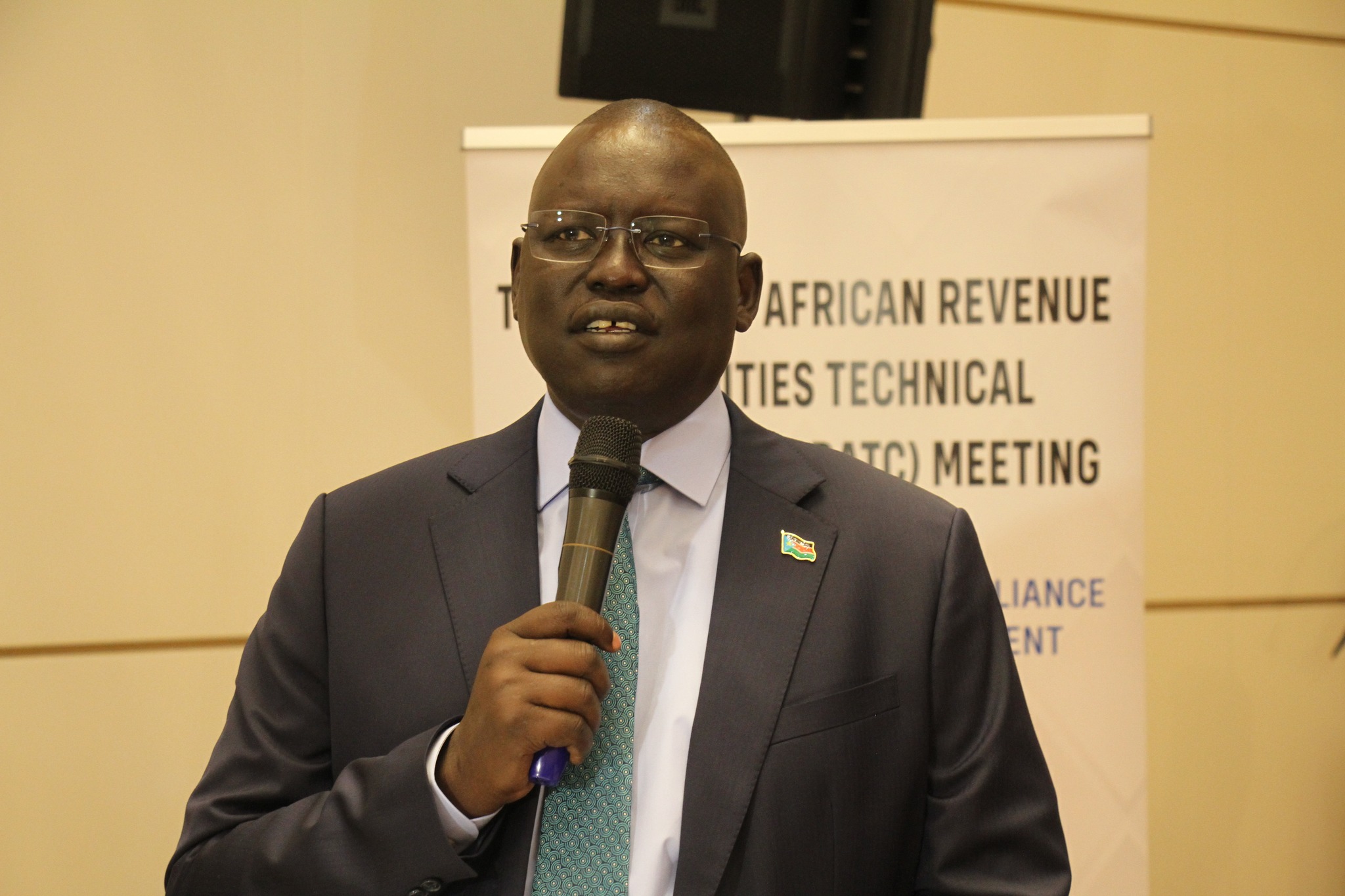
The recent public disclosure of South Sudan’s non-oil revenue collection by the South Sudan Revenue Authority (SSRA) has garnered praise for its commitment to transparency.
Edmund Yakani, Executive Director of the Community Empowerment for Progress Organization (CEPO), commended the SSRA’s openness after Commissioner General Simon Akuei Deng revealed that South Sudan collected 132.6 billion South Sudanese Pounds (SSP) in non-oil revenues during March 2025.
The announcement was made at the opening of the East African Revenue Authorities Technical Committee’s five-day meeting in Juba, where Akuei called the achievement a major milestone, underscoring the importance of transparency in managing public funds.
In response, Yakani praised the SSRA, emphasizing that such actions are essential for fostering trust between the government and the public.
“This is an important milestone for South Sudan, and I sincerely congratulate the leadership of the South Sudan Revenue Authority for its transparency in declaring these revenue figures,” Yakani said in a statement to Standard Zone News on Tuesday.
Yakani urged the SSRA to continue this practice and recommended that revenue updates be made available on a monthly basis, covering both oil and non-oil sources, highlighting that transparency is critical for allowing the public and civil society organizations to scrutinize the use of government funds.
“By making these figures public, the SSRA has opened the door for citizens and civil society organizations to monitor the use of public resources,” he said. “This transparency helps track potential mismanagement, waste, or corruption in the allocation of collected funds, ensuring that resources are spent efficiently and for the benefit of the public.”
Yakani further noted that the 132.6 billion SSP collected in March signals South Sudan’s potential to generate substantial revenue through non-oil sectors, provided transparency continues to be a priority.
“South Sudan, as a major consumer market for East African countries, has the capacity to generate significant revenue from non-oil sources. However, this can only be achieved if revenue collection and allocation are conducted in an open and accountable manner,” Yakani argued.
Despite the government’s efforts to centralize revenue collection, Yakani raised concerns about institutions still operating outside the system. “While President Salva Kiir has called for the centralization of revenue collection, we continue to see instances where some institutions evade this directive,”
While this marked one of the crucial steps in ensuring prudent financial management and earning public trust, citizens now look forward to government’s commitment to this path as stipulated in the 2018 peace accord.

